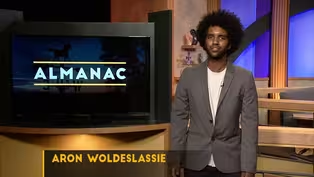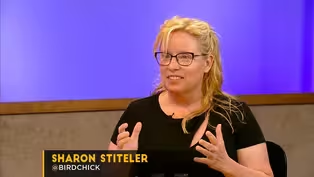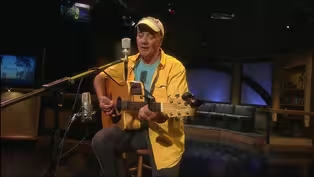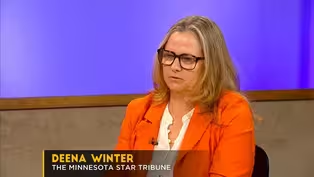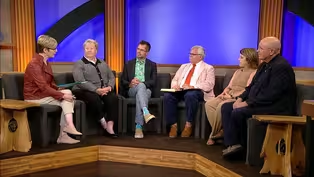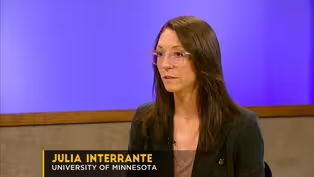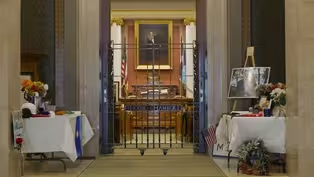
Village Agriculture
Clip: Season 2025 Episode 45 | 5m 24sVideo has Closed Captions
Kaomi Lee went to Olmsted County to learn about preserving cultural foodways.
Kaomi Lee went to Olmsted County to learn about preserving cultural foodways.
Problems playing video? | Closed Captioning Feedback
Problems playing video? | Closed Captioning Feedback
Almanac is a local public television program presented by TPT

Village Agriculture
Clip: Season 2025 Episode 45 | 5m 24sVideo has Closed Captions
Kaomi Lee went to Olmsted County to learn about preserving cultural foodways.
Problems playing video? | Closed Captioning Feedback
How to Watch Almanac
Almanac is available to stream on pbs.org and the free PBS App, available on iPhone, Apple TV, Android TV, Android smartphones, Amazon Fire TV, Amazon Fire Tablet, Roku, Samsung Smart TV, and Vizio.
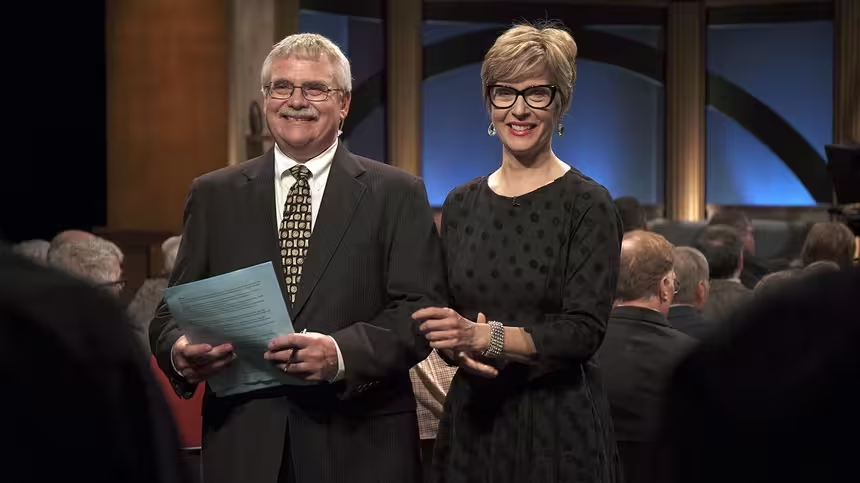
A Minnesota Institution
"Almanac" is a Minnesota institution that has occupied the 7:00 p.m. timeslot on Friday nights for more than 30 years. It is the longest-running primetime TV program ever in the region.Providing Support for PBS.org
Learn Moreabout PBS online sponsorshipSince 2019, a Rochester nonprofit's been helping to connect immigrant farmers with land.
About 250 farmers are currently harvesting local food through the Village Agricultural Cooperative.
Reporter Kayomi Lee went to Olmstead County to learn about how these new Americans are preserving cultural food ways.
Valerie Jussie of Rochester connects to her roots through farming.
I was born in Cameroon in the central province, Yaoundé.
This trilingual new American works as a nurse.
She followed her husband to Minnesota in 2010.
A busy mom to seven kids, growing her food on an acre of land outside the city brings her peace.
I grew up with parents farming on a daily basis.
What are you farming here?
- Handcrafts.
So vegetable, main one are collard green, kale, sweet chard, green beans, cucumber.
- It's a hobby that sustains in more ways than one.
She grows food that she can sell at a local farmer's market and to the food bank.
Some of her harvest are heritage vegetables.
It's produce that she and her friends can't easily find.
I couldn't find it at Walmart or Hy-Vee.
We eat pumpkin leaves.
We eat amaranth leaves.
We eat nightshade manago.
You go in the store, you can't find those.
She snaps off some mild-tasting, tender amaranth leaves.
Very easy when it's fresh, very easy to harvest.
Even the seeds can be eaten.
In Valerie's kitchen, these greens are thrown into a stir fry with spices.
We use a lot of garlic, onion, ginger, and hot pepper.
Growing her own food keeps her family's costs down.
Land around Rochester is expensive.
New Americans like Valerie arrive with farming skills, but often end up in city apartments with no access to land.
- The cooperative was founded really on the premise that there are a number of new Americans that are looking for land access to grow culturally specific foods.
And then a lot of those people as well are looking to develop their own farming business or food business.
- It all started in 2019 and one disused farm turned over by the local food bank.
Now the village has six locations and 22 acres in food production.
There are now about 250 farmers.
The land is divvied up into small plots that rent for as little as $20 a season.
Once someone has a plot, they retain that plot indefinitely unless they're unable to care for it.
But we like to allow people to really invest in their plot.
They invest in the soil.
they invest in the weed management, and so we like to let them retain that plot.
- The US Department of Ag, Minnesota Department of Ag, Mayo Clinic, and Southern Minnesota Initiative Foundation are major donors.
She says their farmers come from diverse countries like Cambodia, Kenya, and Mexico.
In Olmsted County, 11% of residents are foreign born, higher than the state average.
That's more than a 30% increase over 2013.
These farmers from all over the globe are now farming side by side.
- I think it's just really a true story of resilience.
You know, we have a lot of people here who spent time in refugee camps.
They've seen their homes and their communities just taken over or destroyed, and they're just able to come here and build and continue with what they love and what they know.
- Some of the produce goes to hunger relief.
- The produce that a lot of our local farmers provide, especially the village, is fantastic.
It's beautiful produce, it's fresh.
It goes from harvest really to the food shelf almost the same day.
- Channel One is Southeastern Minnesota's largest food assistance provider.
It has $75,000 left on a grant to buy from the village farmers.
We have produce that a lot of times our team doesn't even know what it is.
We'll have to write on it what it is.
But all the greens, lemongrass, things that are meaningful to the people that are growing it are going to be very similar to a lot of the people that are receiving the product.
At the farmers market, Valerie's greens are fresh and affordable at $3 a bunch.
Dunce Trejo is originally from Mexico.
We've been farming with the village, I think, yeah, like seven years.
And we've been selling here for, I think this is our fourth year selling with the village, too.
Most of what she sells are vegetables she grew up eating.
Her stand attracts a lot of Latine customers.
The most popular in the summer is what we call papalo.
It has a very strong flavor.
We call like a cilantro cousin.
She says the village has helped her grow.
Before we grow a farm with them, we do a small garden outside the apartment.
But when I met them, that makes my life more better because we can sell like a little business.
And being close to the land keeps her close to her memories.
I go there with no shoes and I go and walk and like make me feel like I'm in my country.
Aron Woldeslassie Essay | July 2025
Video has Closed Captions
Clip: S2025 Ep45 | 1m 59s | Aron ponders community…at a community pool filled with strangers. (1m 59s)
Video has Closed Captions
Clip: S2025 Ep45 | 4m 43s | Sharon Stiteler shares some birding knowledge for the summer. (4m 43s)
Index File Question + Archival Tune from Jerry Vandiver
Video has Closed Captions
Clip: S2025 Ep45 | 3m 47s | We ask about a mystery Minnesotan who co-founded this daily “product” + Jerry Vandiver tune (3m 47s)
Video has Closed Captions
Clip: S2025 Ep45 | 5m | Deena Winter of the Minnesota Star Tribune on the MPLS DFL endorsement of Sen. Fateh. (5m)
Video has Closed Captions
Clip: S2025 Ep45 | 10m 33s | Republicans Fritz Knaak and Annette Meeks + DFLers Karla Bigham and Javier Morillo (10m 33s)
Rural Hospitals and Obstetric Care
Video has Closed Captions
Clip: S2025 Ep45 | 5m 32s | U of M School of Public Health’s Julia Interrante is a co-author on a new health report. (5m 32s)
Video has Closed Captions
Clip: S2025 Ep45 | 5m 48s | Mary Lahammer on special elections and the passing of Republican state senator this week. (5m 48s)
UnitedHealth Group Fraud Investigation
Video has Closed Captions
Clip: S2025 Ep45 | 5m 4s | Minnesota Star Tribune reporter Chris Snowbeck on UHG’s federal probe. (5m 4s)
Providing Support for PBS.org
Learn Moreabout PBS online sponsorshipSupport for PBS provided by:
Almanac is a local public television program presented by TPT
